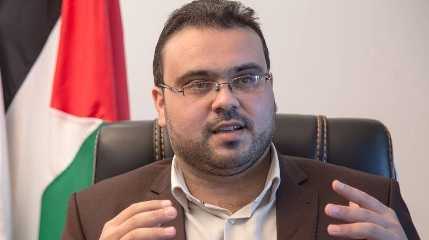
24 Apr 2023; MEMO: Palestinian resistance factions have affirmed that the occupation's threats to assassinate their leaders will lead to a confrontation and the occupation will pay its price.
Hamas spokesperson Hazem Qassem said the occupation's threats to activate its assassination policy is an attempt to bolster its image after the growth of our people's revolution and the diversification of resistance action fronts.
Qassem added that the occupation's hand is no longer free to practice its terrorism, and the resistance's response to any folly will be greater and broader than it expects. He noted that the Palestinian people will continue their legitimate struggle against the occupation and will not fear these threats.
For its part, the Popular Front for the Liberation of Palestine (PFLP) stressed that the occupation's threats "will only increase our people and fighters' determination to adhere to the option of resistance in words, actions, and behaviour, and to insist on responding to any crime the occupation plans to commit."
The PFLP said the occupation's threats to target resistance leaders stem from its aggressive terrorist nature in a blatant and constant attempt to escape its internal crisis and from its growing existential anxiety due to the resistance's strikes.
Additionally, the spokesperson for the Palestinian Freedom Movement Yasser Khalaf, said that such threats do not frighten our people and will not impact the strategy of enhancing and developing the resistance's strength and performance.
He sent a message to the occupation leaders not to make wrong calculations regarding the situation, as what awaits them will be far greater than they expect.
OPINION: Losing 'Deterrence': How Palestinian, Arab Resistance changed rules of war with Israel
Khalaf added that these threats reflect the extent of the crisis the occupation is experiencing, which it seeks to export through the psychological warfare it practises against our people through intimidation, and against the Zionist society through appeasing their vanity and extremism.
The military spokesperson for the Mujahideen Brigades also warned the enemy and its army that silence would not be the response to their assassinations and that the occupation would pay a high price.
The spokesperson emphasised that the enemy's threats to resort to the assassination policy are desperate attempts to repair its image, which has been shattered by the united resistance in the battle to defend Al-Aqsa and the steadfast defenders.
Meanwhile, Hassan Khreisheh, a deputy of the Palestinian Legislative Council (PLC) said the interdependence of resistance fronts in the West Bank, Gaza, Lebanon, and Syria, and the implementation of this on the ground has confounded the occupation, pushing it to threaten assassinations to save face before its audience.
He added that resistance leaders have managed to impose a new equation that the occupation has submitted to; any assault on Al-Aqsa Mosque and the Palestinian people will be responded to from various fronts.
Khreisheh also pointed out that the occupation holds Sheikh Saleh al-Arouri (Deputy Head of Hamas' Political Bureau) responsible for the effort to unify the fronts and the resistance across multiple axes.
He stressed that Al-Arouri and all resistance leaders are "martyrdom projects and fear nothing because they have chosen this path." However, he called for vigilance and caution against the treachery of the occupation.
Al-Arouri hails from the village of Arura, Ramallah district. He is the deputy head of Hamas' Political Bureau and contributed to the establishment of the Al-Qassam Brigades in the West Bank and spent nearly 18 years in Israeli prisons.




